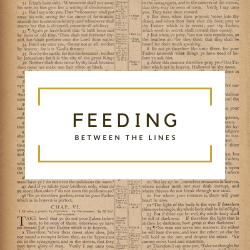Whatever happens in this time of lockdown, it is important to hold onto the things that matter. This period of inactivity need not apply to our minds; having time and space on our hands is not to be squandered. Cleaning out the kitchen cupboards is one good use of our time, but cleaning out our mind-sets is another. The various tests that that we have all been under in our segregated “bubbles” will have brought to the surface both the good and the bad in us. What clowns we are, if we let the opportunity go by to reset our compasses in the relative absence of distractions.
As our Communion liturgy says, “some sins are plain to us, some are hidden, and some we cannot face.” What are we to do, apart from confessing them, to safeguard ourselves from being constantly at their mercy? Is there some housekeeping that we can do to tidy up our act?
We could start by identifying those sins that keep reappearing, and taint our relationship with God. While we all know that He is slow to anger and quick to forgive (Psalm 110) do we also know that there are things that He expects us to do to keep the door shut, to both our sins and the demons that take advantage of the footholds that we give them?
I have found it helpful to identify the point at which any recurring sin is given my permission. What I find is not ignorance of what is right or wrong, but rather a justification that I have presented to myself for not doing the right thing. Therein lies my enemy. If you ever hear yourself say “but where’s the harm” or “I was provoked” or “everybody else is doing it” just know that your enemy the devil pricks up his ears.
Before confessing our sins next time, perhaps we could start by confessing our justifications.
Barry Struthers
As our Communion liturgy says, “some sins are plain to us, some are hidden, and some we cannot face.” What are we to do, apart from confessing them, to safeguard ourselves from being constantly at their mercy? Is there some housekeeping that we can do to tidy up our act?
We could start by identifying those sins that keep reappearing, and taint our relationship with God. While we all know that He is slow to anger and quick to forgive (Psalm 110) do we also know that there are things that He expects us to do to keep the door shut, to both our sins and the demons that take advantage of the footholds that we give them?
I have found it helpful to identify the point at which any recurring sin is given my permission. What I find is not ignorance of what is right or wrong, but rather a justification that I have presented to myself for not doing the right thing. Therein lies my enemy. If you ever hear yourself say “but where’s the harm” or “I was provoked” or “everybody else is doing it” just know that your enemy the devil pricks up his ears.
Before confessing our sins next time, perhaps we could start by confessing our justifications.
Barry Struthers

 RSS Feed
RSS Feed